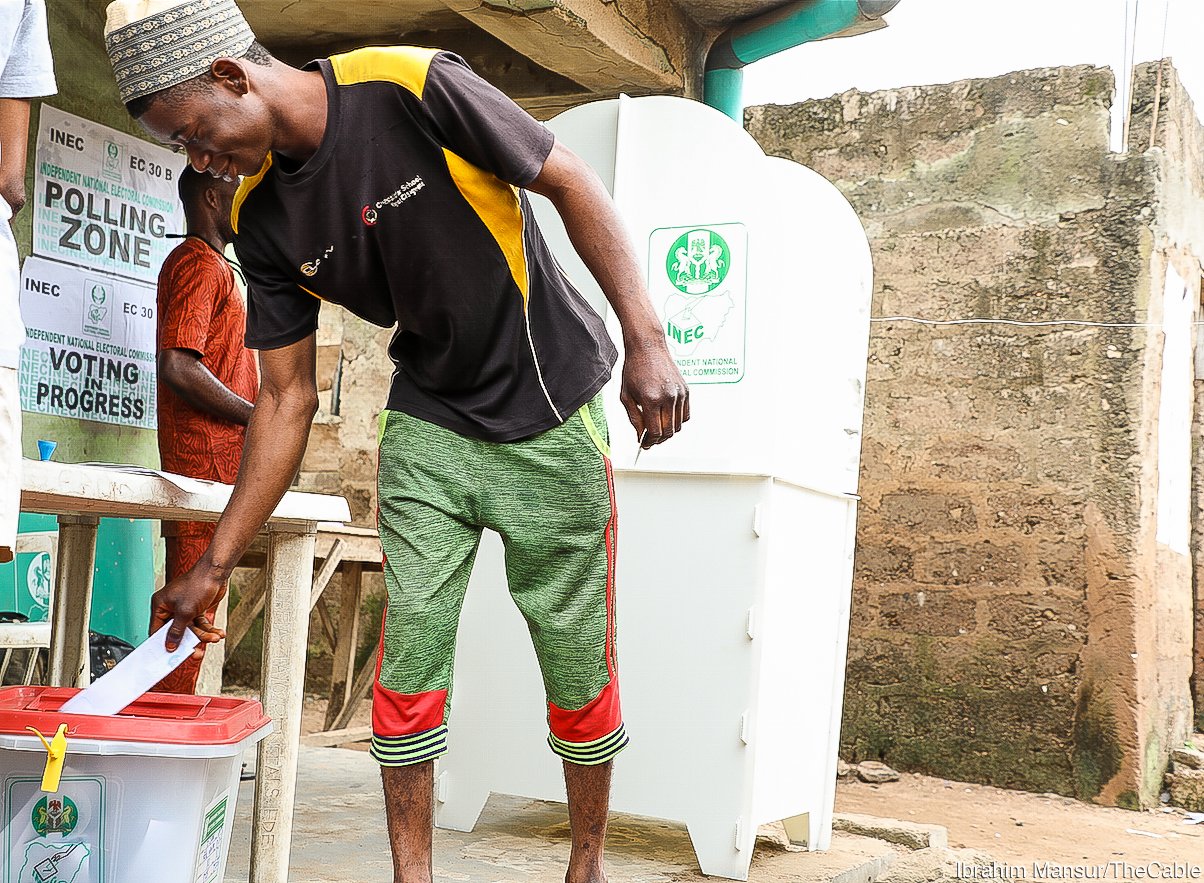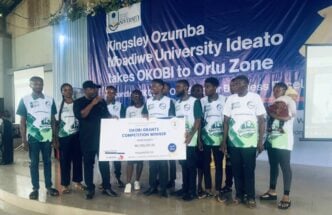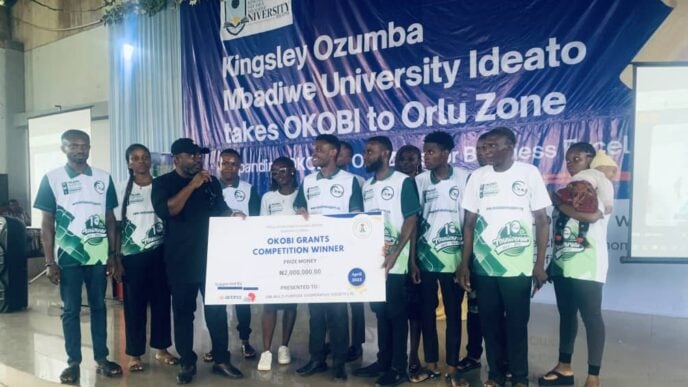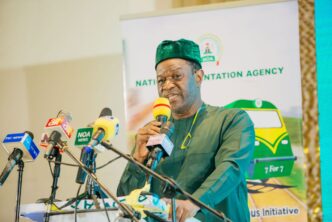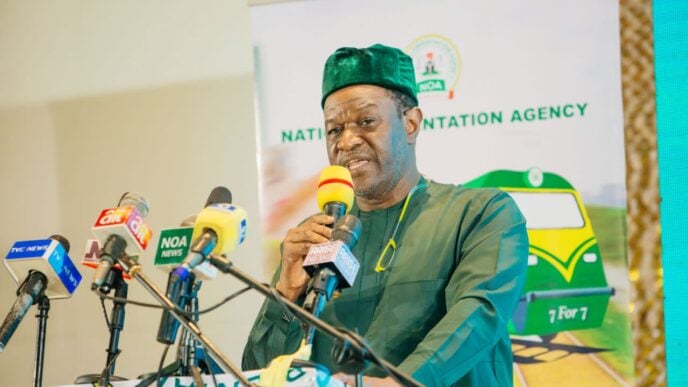Nigeria’s 2027 elections, now just 21 months away, may be regulated by a new electoral law, possibly the Electoral Act 2025, as long as the National Assembly concludes the ongoing amendment process and the President grants assent to the bill this year. Therefore, the next few months will be determinative. Debates on electoral reforms and proposed amendments to key sections of the Election Act 2022 and Constitution will dominate public discourse. As the momentum of the 2027 election gathers steam, politicians are becoming more invested in tweaking the rules of the game to guarantee electoral victory in 2027 rather than ensuring electoral reform proposals address the intractable challenges bedevilling Nigeria’s electoral process. Foremost among these challenges is the declining public trust in the electoral process due to election manipulation. Also, ‘captured’ democratic institutions, like INEC and the judiciary, are encumbered by persistent political interference and lastly, policies and practices that disenfranchise eligible citizens from voting.
INEC’s proposals for electoral reform
INEC has officially highlighted its proposals for electoral reform in the current electoral cycle. These include four major constitutional amendments cutting across 16 sections of the 1999 constitution (As Amended). The proposals include the introduction of early voting and special voting to allow eligible voters on essential services to vote at elections. This includes election officials, security personnel, accredited journalists and election observers, as well as voters under incarceration and Nigeria living in the diaspora. This reform will ensure eligible voters are not disenfranchised as a result of their role in elections or location.
To enhance the independence of the Commission, INEC is proposing the removal of the powers to appoint Resident Electoral Commissioners (RECs) from the President and vest the power in INEC. This amendment would empower INEC to appoint and discipline Heads of State Offices, FCT Offices, and State Directors of Elections. Furthermore, INEC is advocating for the establishment an Electoral Offences Commission and a Political Party Regulatory Agency. To advance political inclusion, INEC recommends the creation of designated constituencies for women and persons with disabilities.
Advertisement
In relation to the 2022 Electoral Act, INEC is advocating for amendments to 35 sections. Notable amongst the proposals include removing the ambiguities in the result management process, particularly the ambiguity in the words ‘transfer’ and ‘direct transmission’ of election results used in Sections 60(5) and 64(4 & 5) of the Electoral Act, which in the estimation of the Commission has resulted in conflicting interpretation. Another significant proposal is the introduction of a caveat to limit INEC’s power to review election results solely to cases of declaration of results under duress. Finally, INEC proposes the introduction of electronically downloadable voter cards or any other form of identification acceptable to the Commission for voter accreditation. This would enhance voter participation and reduce barriers to participation, especially where the physical distribution of Permanent Voter Cards (PVCs) has proven challenging.
Citizens’ Demands for Electoral Reform
Following extensive consultations and a review of both domestic and international election observation recommendations, civil society groups released a Citizens’ Memorandum on Electoral Reform (2024). The memorandum outlines 37 recommendations under 15 strategic objectives across 15 priority reform areas.
Advertisement
A key citizen demand is strengthening INEC’s independence and professionalism. To achieve this, the power vested in the President to appoint the Chairman, National Commissioners, and RECs should be removed and a multi-stakeholder appointment mechanism adopted. This will ensure appointment to INEC are merit-based appointments and devoid of political interference. The constitutional criteria of “non-partisanship and unquestionable character” should be expanded to include professional qualifications, health status, age, and gender. The introduction of mandatory timelines for appointments into INEC, such as requiring vacancies to be filled within 30 days, is recommended. It will prevent unwarranted delays in constituting the Commission as witnessed in the current instance where the second National Commissioner position for the South East vacated by Barr. Festus Okoye, two years ago, remains unfilled.
Another significant demand is the resolution of pre- and post-election disputes before the swearing-in of elected officials. This amendment will enhance the legitimacy and stability of the electoral process. Achieving this will require revising election timelines as well as abridging the timeframe for hearing and determining pre-election matters and election petitions. The citizen memo also advocates for mandatory electronic transmission of results and legal timelines for testing electoral technologies deployed by INEC. These steps are crucial to improving transparency of any part of the electoral powered by technology. To enhance voter turnout, the memorandum proposes a review of the requirements for voter identification to permit the use of other legally acceptable means of identification for voter verification in addition to Permanent Voters’ Cards (PVCs). Lastly, early voting is proposed to accommodate election officials and voters delivering essential services on election day such as security personnel, journalists, and accredited observers. This reform would ensure these critical actors are not disenfranchised due to their responsibilities on election day.
Implications for the 2027 elections
While President’s Tinubu electoral reform agenda remains unclear, the National Assembly, through its joint committee on electoral reform, has made significant progress in the review of electoral laws. Four critical priorities emerge from INEC’s proposals and citizens demands:
Advertisement
First, there is a great need to introduce special mechanisms to uphold citizens’ right to vote by making voting accessible. Proposals like early/special voting will enable historically marginalized eligible voters exercise their franchise. It will be historic for INEC officials, inmates, Nigerians in the diaspora, and others to cast their ballot in 2027 due to early/special voting. Alternative forms of identification and downloadable voter cards could address voter disenfranchisement resulting from the non-issuance of PVCs.
Secondly, the election results management regime needs an overhaul. Certain ambiguities in the current electoral act that occasion misinterpretation and discretionary enforcement need to be resolved to clear procedures for collation and transmission. This should include compulsory electronic transmission to complement the manual collation process. Although the Supreme Court has ruled that the INEC IReV is not part of the collation process, this reform cycle presents an opportunity to integrate electronic transmission into the results collation process. Unfortunately, electronic transmission has not featured as a priority reform issue in the current reform process in the National Assembly.
Thirdly, INEC’s independence is non-negotiable. There is growing consensus that divesting the power to appoint individuals from the President is a step towards recapturing the Commission and restoring public confidence. Lastly, concluding election disputes before swearing-in will create a sense of equity and prevent incumbents from influencing judicial outcomes using state resources and power.
However, INEC’s proposal that its power to review election results under Section 65 Electoral Act 2022 should be limited to instances of declaration by duress is problematic. The current law provides two conditions for the exercise of this power: when election results are declared voluntarily and when election results are declared contrary to the provisions of the law, regulations and guidelines, and manual for the election. INEC’s proposal to eliminate the latter will further weaken the results management process, considering recent elections where elections were stolen through clear violations of the Electoral Act and INEC guidelines. Rather than limit the conditions, the current provision should be retained and strengthened to provide clarity on the procedure for activating the power to review election results.
Advertisement
As Nigeria enters a critical period in the electoral reform cycle, history beckons the national assembly and the President to act as statesmen and women by prioritizing public interests above personal or partisan political gain. The country’s electoral process is bleeding and bereft of public trust. While electoral amendments are a pathway to rebuilding trust and safeguarding the credibility of the 2027 elections, attitudinal change among political elites is the reform most needed to ensure every vote counts in February 2027.
Itodo is an election, democracy, and public policy enthusiast. Itodo serves as the Executive Director of Yiaga Africa and Principal Partner of the Election Law Center. He is also a member of the Kofi Annan Foundation board and the Board of Advisers of International Institute for Democracy and Electoral Assistance (IDEA). Comments and feedback to [email protected]
Advertisement
Advertisement
Views expressed by contributors are strictly personal and not of TheCable.

